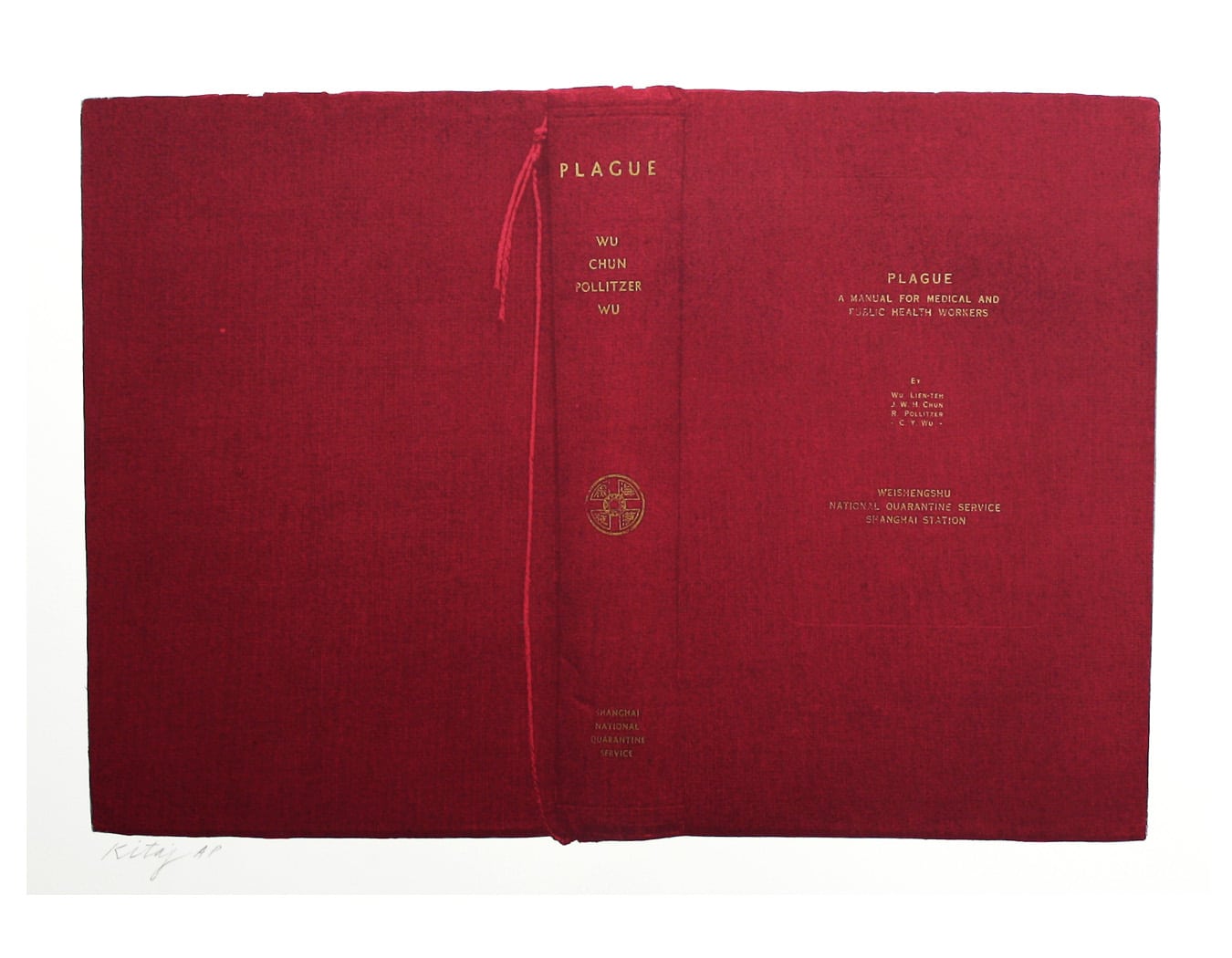
Plague
SKU: 8281
Title:
Plague
Date of publication:
Publisher:
Artist:
Ronald Brook Kitaj
Colour:
Signed limited edition screenprint
Colour screenprint, sheet size 78 x 57.5 cms, signed by the artist and inscribed 'AP' (Artist’s Proof) in pencil; Kelpra Studio number 'K7252' stamped on the verso. From “In Our Time: Covers for a Small Library After the Life for the Most Part”, a portfolio of 50 prints published in an edition of 150, plus a small number of artist’s proofs. R.B. Kitaj (1932-2007) was an American artist of Jewish heritage, who spent much of his working life in London. "The In Our Time portfolio (1969) is a series of fifty photo-screenprints that became Kitaj's major artistic focus during the year following the death of his Viennese-born first wife. Subtitled 'Covers for a small library after the life for the most part,' it documents favorite books that had inspired him intellectually. Kitaj described this project as an example of outright 'Duchampism,' in that these are indeed images appropriated from actual bookcovers. Although these are 'ready-mades,' Kitaj's surviving correspondence reveals that there was nonetheless a careful image-editing process, even alteration, of individual prints during the portfolio's production. The prevailing idea of these covers is that they reflect 'well-used' books; torn and stained bookjackets, dog-eared pages, and loose strings from worn-out bindings are all replicated in the screenprints. Collectively, the covers are fragments of Kitaj's mental and spiritual inner life, each representing some idea or philosophy that had resonated with the artist. Certainly some covers are visual tributes in themselves to the graphic innovations of 20th-century book design, whereas others are homages to favorite modern texts, e.g., W. B. Yeats, James Agee, and Henry Miller. Still others reflect larger social and political interests of the mid-20th-century...Collage-like, appropriated, and often ironic, they also subtly reference the 'Pop Art' use of advertising labels (e.g. Warhol's Soup Cans). Kitaj's bookcovers are nevertheless relics of specific moments in the artist's development, in the emergence of literary ideas, and at the same time as visual emblems even a time capsule of mid-20th-century European and American intellectual consciousness." (Duke University Museum of Art Exhibition Catalogue for this portfolio, 2001). Read more

